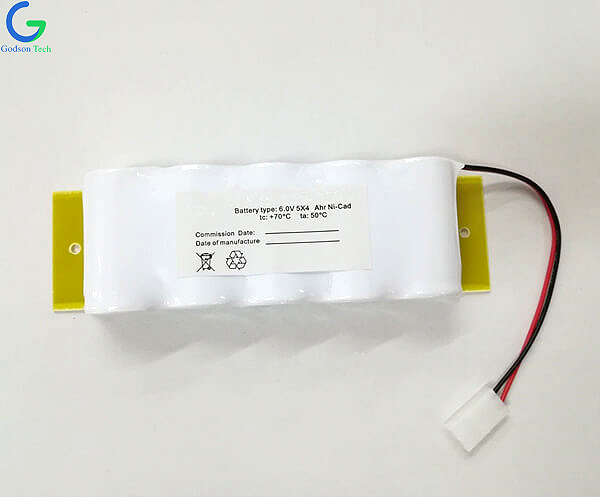Structure and Use of Nickel Cadmium Battery
Ni-Cd Battery Pack Supplier to share with you the structure and use of the Nickel Cadmium Battery.
Nickel Cadmium Battery refers to an alkaline nickel-cadmium battery battery using metal cadmium as a negative electrode active material and nickel hydroxide as a positive electrode active material. The positive and negative materials are respectively filled in the perforated nickel-plated steel strip (or nickel strip), and are formed into a plate by drawing, rolling, sintering, forming or pasting, drying, pressing, etc.; A material such as woven fabric is used as a separator; an aqueous solution of potassium hydroxide is used as an electrolyte solution; and the electrode is assembled in a plastic or nickel-plated steel casing by winding or lamination.
The Nickel Cadmium Battery has a standard voltage of 1.2V and is available in cylindrical seal (KR), snap-on (KB), and square seal (KC). It has the characteristics of wide temperature range, long cycle and storage life, and ability to discharge with a large current. However, there is a “memory” effect, which often results in a decrease in electrical performance due to irregular use of regularity.
Nickel Cadmium Battery
Use of Ni-Cd Rechargeable Battery:
Large bag and open cadmium nickel batteries are mainly used for starting or emergency power supply for railway locomotives, mines, armored vehicles, aircraft engines, etc. Cylindrical sealed Ni-Cd Rechargeable Battery is mainly used in portable appliances such as power tools and shavers. The small button type cadmium nickel battery is mainly used for cordless phones and electric toys with low current and low rate discharge. Due to the environmental pollution of discarded cadmium-nickel batteries, this series of batteries will gradually be replaced by better performance metal hydride nickel batteries.

评论
发表评论